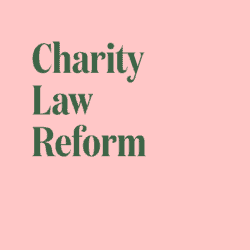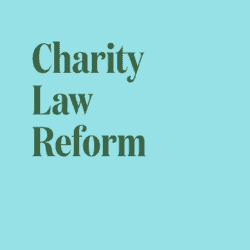With a patchwork of laws across Canada governing the investment of charitable funds, and a lack of clarity and CRA guidance around impact investments, charities that operate in more than one province must spend considerable time and money on ensuring compliance – resources that would be better directed toward their charitable work.
This is the seventh in a series of articles focused on various aspects of charity law that have been a burden on the Canadian charitable and non-profit sector for 70 years. The articles are written by members of the Canadian Bar Association’s Charities and Not-for-Profit Law Section, who deal with these issues on behalf of their clients on a regular basis.
The legal issue that exists
The statutory laws concerning the investment of charitable funds lack clarity and consistency across Canada. In all common-law provinces and territories, provincial trustee acts govern how a charity invests its assets, and in Quebec, the Civil Code of Québec applies. Yet the investment powers vary depending on the particular piece of legislation in each province or territory. For example, charities in provinces with a “prudent investor” standard should consider how trust property is invested in the context of an overall investment strategy, whereas charities in other provinces may not need to make such considerations when legislation requires only that the investments meet the standard of a prudent person. Some provinces list specific criteria to consider when making investments, whereas other provinces are silent and rely on the prudent-investor or prudent-person standard to infer criteria. As another example of differences, the legislation of some provinces allows directors of a charity to delegate investment authority, while the legislation in other provinces is silent on this point.
The statutory laws concerning the investment of charitable funds lack clarity and consistency across Canada.
There is also a lack of clarity in the law and the Canada Revenue Agency’s (CRA) policies about the ability to make impact investments, which are also often referred to as social investments or program related investments. Impact investments are investments that are used to achieve positive social outcomes, rather than solely to achieve a financial return. The lack of guidance about impact investments is particularly concerning given that there is increasing interest in the charitable and non-profit sector in being able to engage in impact investments. Legislation in Ontario – the Charities Accounting Act – now allows charities to make “social investments” that have a dual goal of a financial return and a social purpose. However, this legislation is unique to Ontario and is inconsistent with federal tax policies from the CRA that outline requirements for a similar dual-purpose type of investment referred to as “program-related investments” (PRIs). The inconsistencies arise from different views regarding whether the impact investment should be made with the intent to achieve a financial return or not. CRA Guidance CG-014, “Community Economic Development Activities and Charitable Registration,” says that PRIs “may generate a financial return” but emphasizes that “they are not made for that reason.” By way of contrast, in Ontario, subsection 10.2(2) of the Charities Accounting Act says that social investments will both further the purpose of the trust “and achieve a financial return,” which suggests that an impact investment should be made for the purpose of achieving a financial return as well as furthering the purpose.
The lack of guidance about impact investments is particularly concerning given increasing interest in the charitable and non-profit sector in being able to engage in impact investments.
Following changes to the Income Tax Act by Bill C-19, Budget Implementation Act, 2022, No. 1 (“Bill C-19) on June 23, 2022, charities may make qualifying disbursements by “otherwise making resources available” to qualified donees and grantee organizations (e.g., organizations that are not qualified donees) and will therefore now have an additional set of rules to comply with when making dual-purpose investments such as PRIs. Further, Bill C-19’s changes to the Income Tax Act appear to preclude dual-purpose investments from satisfying the disbursement quota of a registered charity, adding an additional layer of complexity.
Types of organizations impacted by the problem and how they work around it
There are more than 85,000 registered charities in Canada, all of which could potentially be affected by legislation regarding their investment powers and obligations. Charities that operate in more than one province may be particularly affected by the lack of consistency in provincial or territorial trustee legislation because it can be difficult for them to know which provincial laws take precedence. Charities that make social investments or PRIs may be impacted by the inconsistencies between provincial legislation, such as the Charities Accounting Act, and federal tax policies, including CRA Guidance CG-014, “Community Economic Development Activities and Charitable Registration.” As a result, charities may have to spend more on professional fees to understand what laws and policies apply and ensure compliance with the various requirements.
Charities that operate in more than one province may be particularly affected by the lack of consistency … because it can be difficult for them to know which provincial laws take precedence.
In addition to charities, organizations that hold funds raised for a restricted charitable purpose may also be impacted by these concerns about the varying standards for investments across provinces.
Larger organizations and/or those with greater access to funds may be able to address the complexity and confusion caused by inconsistent legislation by hiring legal counsel or experts to advise them about which legislative provisions may apply in a particular situation. Other charities might choose to limit their activities in certain provinces or might choose not to make certain types of investments at all – such as social investments or PRIs – in an effort to avoid increased complexity.
Potential regulatory solutions that have been proposed
This issue can best be resolved if the provinces enact uniform legislation on investments, including social investments. A Uniform Trustee Act was passed by the Uniform Law Conference of Canada in 2012, and in this regard, it is helpful that the act sets out an investment standard (the “prudent investor” standard) and investment powers. In the future, it would be beneficial if an updated Uniform Trustee Act could be adopted that also includes provisions regarding social investments that the provinces could adopt. To ensure that provincial trust law and federal tax policies do not conflict, there should be dialogue and consultation between the relevant provincial and federal actors so that provincial social investment rules and the CRA’s policies on PRIs are consistent with each other, particularly with regard to whether these investments should intend to achieve a financial return.
This issue can best be resolved if the provinces enact uniform legislation on investments, including social investments.
Not every province will enact uniform legislation, especially not right away. However, model legislation, even if not immediately and universally adopted, would still be useful to provide clarity on certain issues, such as when a province may have jurisdiction over a charity’s investment decisions, especially in situations where a charity operates in multiple jurisdictions within Canada.
The benefits of solving this issue for the sector
Charities and the communities they serve will benefit if charities are able to devote more of their resources to charitable programs, rather than trying to understand and comply with complex and contradictory investment powers that vary by province and territory and are, at times, inconsistent with federal tax legislation and policy.
Updated uniform provincial trustee legislation that includes provisions regarding social investments and is consistent with federal policies would provide a clear set of guidelines for charities in making investment decisions. Charities wishing to expand to other provinces would not be impeded by varying standards for investments and would more easily be able to share knowledge and expertise when embarking on social investment projects.


